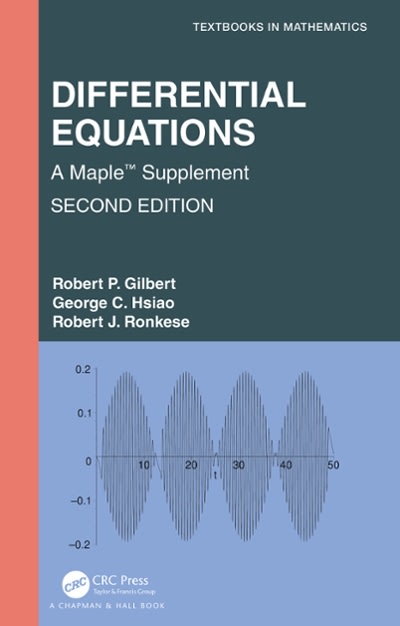Question
Nationally, about 11% of the total U.S. wheat crop is destroyed each year by hail.An insurance company is studying wheat hail damage claims in a
Nationally, about 11% of the total U.S. wheat crop is destroyed each year by hail.An insurance company is studying wheat hail damage claims in a county in Colorado. A random sample of16 claimsin the county reported the percentage of their wheat lost to hail.1610101211191499825191510143The sample mean isx=12.8%. Letxbe a random variable that represents the percentage of wheat crop in that county lost to hail. Assume thatxhas a normal distribution and= 5.0%.Do these data indicate that the percentage of wheat crop lost to hail in that county is different (either way) from the national mean of 11%? Use= 0.01.(a) What is the level of significance?
State the null and alternate hypotheses. Will you use a left-tailed, right-tailed, or two-tailed test?
H0:= 11%;H1:> 11%; right-tailed
H0:11%;H1:= 11%; two-tailed
H0:= 11%;H1:11%; two-tailed
H0:= 11%;H1:< 11%; left-tailed
(b) What sampling distribution will you use? Explain the rationale for your choice of sampling distribution.
The Student'st, sincenis large with unknown.
The standard normal, since we assume thatxhas a normal distribution with known.
The Student'st, since we assume thatxhas a normal distribution with known.
The standard normal, since we assume thatxhas a normal distribution with unknown.
Compute thezvalue of the sample test statistic. (Round your answer to two decimal places.)
(c) Find (or estimate) theP-value. (Round your answer to four decimal places.)
Sketch the sampling distribution and show the area corresponding to theP-value.
(d) Based on your answers in parts (a) to (c), will you reject or fail to reject the null hypothesis? Are the data statistically significant at level?
At the= 0.01 level, we reject the null hypothesis and conclude the data are statistically significant.
At the= 0.01 level, we reject the null hypothesis and conclude the data are not statistically significant.
At the= 0.01 level, we fail to reject the null hypothesis and conclude the data are statistically significant.
At the= 0.01 level, we fail to reject the null hypothesis and conclude the data are not statistically significant.
(e) State your conclusion in the context of the application.
There is sufficient evidence at the 0.01 level to conclude that the average hail damage to wheat crops in the county in Colorado differs from the national average.
There is insufficient evidence at the 0.01 level to conclude that the average hail damage to wheat crops in the county in Colorado differs from the national average.
Step by Step Solution
There are 3 Steps involved in it
Step: 1

Get Instant Access to Expert-Tailored Solutions
See step-by-step solutions with expert insights and AI powered tools for academic success
Step: 2

Step: 3

Ace Your Homework with AI
Get the answers you need in no time with our AI-driven, step-by-step assistance
Get Started


